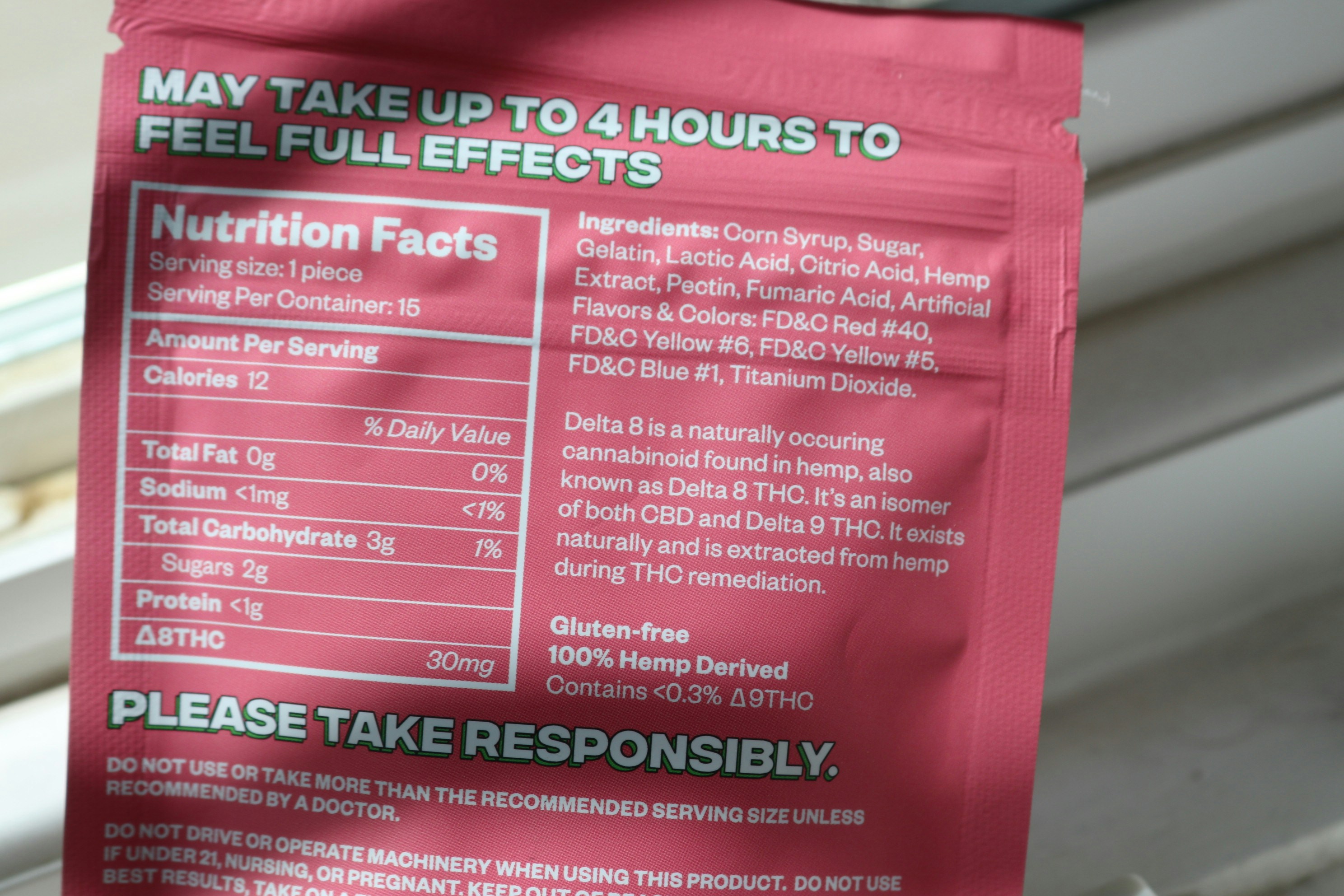


The Power of Protein
Last updated: Mar 28, 2024
Nutrition
Protein, an essential macronutrient, plays a vital role in numerous bodily functions, from building and repairing tissues to supporting immune function and metabolic processes. As an AI nutrition coach, Amelia is here to provide you with evidence-based insights and personalized guidance on harnessing the power of protein. By exploring the latest scientific research, we'll delve into the multifaceted benefits of this essential macronutrient, empowering you to make informed decisions.
Understanding Protein
Protein is a macronutrient composed of amino acids, often referred to as the building blocks of life. It is vital for the structure, function, and regulation of the body's tissues and organs. Proteins play critical roles in muscle construction, hormone production, and the immune response, among other functions. Understanding these basics lays the groundwork for appreciating protein's comprehensive benefits.
Protein Sources
Our bodies require nine essential amino acids that we must obtain through our diet, as they cannot be produced internally. While all proteins are made up of amino acids, not all protein sources contain all nine essential amino acids in the required proportions.
Animal-based Proteins: Meat, poultry, fish, eggs, and dairy products are complete protein sources, containing all nine essential amino acids in the required proportions.
Plant-based Proteins:
Complete Plant Proteins: Some plant-based sources, such as quinoa, soybeans, and soy products (like tofu and tempeh), are considered complete proteins, containing all nine essential amino acids in the required proportions.
Complementary Proteins: Many plant-based proteins, such as beans, legumes, nuts, and grains, are incomplete proteins, lacking one or more essential amino acids. However, combining different plant-based protein sources throughout the day can provide your body with all the necessary amino acids.
Variety is Key: When following a plant-based diet, consuming a variety of protein sources is crucial to ensure you get all the essential amino acids your body needs.
Protein's Impact on Weight Management
Satiety and Appetite Control: A meta-analysis found that high-protein diets led to greater feelings of fullness and reduced overall calorie intake compared to lower-protein diets (1).
Boosts Metabolism: Protein has a higher thermic effect, meaning your body burns more calories digesting it compared to carbohydrates or fats.
Preserving Lean Mass: Adequate protein intake helps preserve lean body mass during weight loss, ensuring that you maintain a healthy metabolism (2).
Protein Powers Muscle Growth and Maintenance
Muscle Protein Synthesis: Protein is essential for muscle protein synthesis, the process by which our bodies build and repair muscle tissue. Consuming sufficient protein, particularly in combination with resistance exercise, can optimize muscle growth and strength.
Fighting Age-Related Muscle Loss: As we age, maintaining muscle mass becomes increasingly important. A meta-analysis concluded that higher protein intake, especially when combined with resistance training, can combat age-related muscle loss and improve functional outcomes in older adults (3).
Protein Supports Bone Health
Bone Mineral Density: Adequate protein intake is crucial for maintaining bone mineral density. While high protein intake may increase calcium excretion, it also enhances calcium absorption, and research suggests that protein has a positive overall effect on bone health (4).
Fracture Risk Reduction: A meta-analysis found that higher protein intake was associated with a lower risk of hip fractures and better bone mineral density in adults (5).
Protein Bolsters Immune Function
Protein is crucial for a robust immune system. Amino acids serve as the building blocks for immune cells and are essential for the production of antibodies and the healing of wounds. A meta-analysis in the journal Nutrients highlighted the importance of adequate protein intake for optimal immune response, particularly in older adults and those facing immunological challenges (6).
Protein Nourishes Mental Health
The connection between protein and mental well-being is often overlooked. Amino acids are precursors to neurotransmitters, the chemical messengers in our brains that regulate mood, cognition, and behavior. A meta-analysis published in the journal Psychological Medicine found that higher protein intake was associated with a lower risk of depression and improved cognitive function in older adults (7).
How Much Protein Do You Need?
The amount of protein your body needs depends on factors like age, weight, body fat percentage, activity level, and health goals. The Recommended Dietary Allowance (RDA) for protein is 0.36 grams per pound of body weight per day for adults (8). This means a 150-pound person would need about 54g of protein daily. However, the RDA is the minimum amount required to prevent deficiency, and many experts believe that higher intakes may be beneficial for optimal health, especially for physically active individuals, older adults, and those looking to lose weight or build muscle (9).
Debunking the 1g/lb Myth: Optimal Protein Intake
You may have heard the common advice that to build muscle, you need to eat 1 gram of protein per pound of body weight. But this isn't the case. A 2018 meta-analysis of 49 studies found that eating 0.73 grams of protein per pound (1.6 grams per kilogram) of body weight per day is enough to maximize muscle growth (3).
While some people might need a bit more protein due to factors like genetics, training status, or overall diet, several review papers have concluded that 0.82 grams per pound (1.8 grams per kilogram) is the upper limit at which protein intake benefits body composition (10, 11). This holds true even when you're trying to lose weight (12).
Daily Protein Requirements for Different Activity Levels and Types
Sedentary: The RDA of 0.36g/lb is sufficient for most sedentary individuals (8).
Endurance Training: 0.54-0.64g/lb of body weight (13).
Strength and Power Training: 0.64-0.82g/lb of body weight (9, 10, 11, 12).
Older Adults: 0.45-0.55g/lb of body weight per day to help maintain muscle mass, promote bone health, and support overall well-being (14, 15).
Need ideas on how to incorporate more protein into your diet? Check out Protein Power-Up: Ways to Boost Your Intake at Every Meal.
Amelia's Personalized Protein Recommendations
Now that we've covered the general protein requirements for different activity levels and types let's explore how Amelia can help you personalize your protein intake. She understands that individual protein requirements vary based on factors such as age, sex, weight, activity level, and health goals. By leveraging cutting-edge technology and scientific research, we make it easy for you to incorporate the right amount and type of protein into your diet.
Conclusion
Protein's multifaceted benefits for holistic health cannot be overstated. This essential macronutrient plays a vital role in our overall wellness, from weight management and muscle maintenance to bone health, immune function, and mental well-being. By prioritizing protein in a balanced diet, you can unlock its potential and experience the transformative power of personalized nutrition. Amelia is here to guide you every step of the way, empowering you to make informed choices for sustainable, lifelong health.
Protein, an essential macronutrient, plays a vital role in numerous bodily functions, from building and repairing tissues to supporting immune function and metabolic processes. As an AI nutrition coach, Amelia is here to provide you with evidence-based insights and personalized guidance on harnessing the power of protein. By exploring the latest scientific research, we'll delve into the multifaceted benefits of this essential macronutrient, empowering you to make informed decisions.
Understanding Protein
Protein is a macronutrient composed of amino acids, often referred to as the building blocks of life. It is vital for the structure, function, and regulation of the body's tissues and organs. Proteins play critical roles in muscle construction, hormone production, and the immune response, among other functions. Understanding these basics lays the groundwork for appreciating protein's comprehensive benefits.
Protein Sources
Our bodies require nine essential amino acids that we must obtain through our diet, as they cannot be produced internally. While all proteins are made up of amino acids, not all protein sources contain all nine essential amino acids in the required proportions.
Animal-based Proteins: Meat, poultry, fish, eggs, and dairy products are complete protein sources, containing all nine essential amino acids in the required proportions.
Plant-based Proteins:
Complete Plant Proteins: Some plant-based sources, such as quinoa, soybeans, and soy products (like tofu and tempeh), are considered complete proteins, containing all nine essential amino acids in the required proportions.
Complementary Proteins: Many plant-based proteins, such as beans, legumes, nuts, and grains, are incomplete proteins, lacking one or more essential amino acids. However, combining different plant-based protein sources throughout the day can provide your body with all the necessary amino acids.
Variety is Key: When following a plant-based diet, consuming a variety of protein sources is crucial to ensure you get all the essential amino acids your body needs.
Protein's Impact on Weight Management
Satiety and Appetite Control: A meta-analysis found that high-protein diets led to greater feelings of fullness and reduced overall calorie intake compared to lower-protein diets (1).
Boosts Metabolism: Protein has a higher thermic effect, meaning your body burns more calories digesting it compared to carbohydrates or fats.
Preserving Lean Mass: Adequate protein intake helps preserve lean body mass during weight loss, ensuring that you maintain a healthy metabolism (2).
Protein Powers Muscle Growth and Maintenance
Muscle Protein Synthesis: Protein is essential for muscle protein synthesis, the process by which our bodies build and repair muscle tissue. Consuming sufficient protein, particularly in combination with resistance exercise, can optimize muscle growth and strength.
Fighting Age-Related Muscle Loss: As we age, maintaining muscle mass becomes increasingly important. A meta-analysis concluded that higher protein intake, especially when combined with resistance training, can combat age-related muscle loss and improve functional outcomes in older adults (3).
Protein Supports Bone Health
Bone Mineral Density: Adequate protein intake is crucial for maintaining bone mineral density. While high protein intake may increase calcium excretion, it also enhances calcium absorption, and research suggests that protein has a positive overall effect on bone health (4).
Fracture Risk Reduction: A meta-analysis found that higher protein intake was associated with a lower risk of hip fractures and better bone mineral density in adults (5).
Protein Bolsters Immune Function
Protein is crucial for a robust immune system. Amino acids serve as the building blocks for immune cells and are essential for the production of antibodies and the healing of wounds. A meta-analysis in the journal Nutrients highlighted the importance of adequate protein intake for optimal immune response, particularly in older adults and those facing immunological challenges (6).
Protein Nourishes Mental Health
The connection between protein and mental well-being is often overlooked. Amino acids are precursors to neurotransmitters, the chemical messengers in our brains that regulate mood, cognition, and behavior. A meta-analysis published in the journal Psychological Medicine found that higher protein intake was associated with a lower risk of depression and improved cognitive function in older adults (7).
How Much Protein Do You Need?
The amount of protein your body needs depends on factors like age, weight, body fat percentage, activity level, and health goals. The Recommended Dietary Allowance (RDA) for protein is 0.36 grams per pound of body weight per day for adults (8). This means a 150-pound person would need about 54g of protein daily. However, the RDA is the minimum amount required to prevent deficiency, and many experts believe that higher intakes may be beneficial for optimal health, especially for physically active individuals, older adults, and those looking to lose weight or build muscle (9).
Debunking the 1g/lb Myth: Optimal Protein Intake
You may have heard the common advice that to build muscle, you need to eat 1 gram of protein per pound of body weight. But this isn't the case. A 2018 meta-analysis of 49 studies found that eating 0.73 grams of protein per pound (1.6 grams per kilogram) of body weight per day is enough to maximize muscle growth (3).
While some people might need a bit more protein due to factors like genetics, training status, or overall diet, several review papers have concluded that 0.82 grams per pound (1.8 grams per kilogram) is the upper limit at which protein intake benefits body composition (10, 11). This holds true even when you're trying to lose weight (12).
Daily Protein Requirements for Different Activity Levels and Types
Sedentary: The RDA of 0.36g/lb is sufficient for most sedentary individuals (8).
Endurance Training: 0.54-0.64g/lb of body weight (13).
Strength and Power Training: 0.64-0.82g/lb of body weight (9, 10, 11, 12).
Older Adults: 0.45-0.55g/lb of body weight per day to help maintain muscle mass, promote bone health, and support overall well-being (14, 15).
Need ideas on how to incorporate more protein into your diet? Check out Protein Power-Up: Ways to Boost Your Intake at Every Meal.
Amelia's Personalized Protein Recommendations
Now that we've covered the general protein requirements for different activity levels and types let's explore how Amelia can help you personalize your protein intake. She understands that individual protein requirements vary based on factors such as age, sex, weight, activity level, and health goals. By leveraging cutting-edge technology and scientific research, we make it easy for you to incorporate the right amount and type of protein into your diet.
Conclusion
Protein's multifaceted benefits for holistic health cannot be overstated. This essential macronutrient plays a vital role in our overall wellness, from weight management and muscle maintenance to bone health, immune function, and mental well-being. By prioritizing protein in a balanced diet, you can unlock its potential and experience the transformative power of personalized nutrition. Amelia is here to guide you every step of the way, empowering you to make informed choices for sustainable, lifelong health.
Protein, an essential macronutrient, plays a vital role in numerous bodily functions, from building and repairing tissues to supporting immune function and metabolic processes. As an AI nutrition coach, Amelia is here to provide you with evidence-based insights and personalized guidance on harnessing the power of protein. By exploring the latest scientific research, we'll delve into the multifaceted benefits of this essential macronutrient, empowering you to make informed decisions.
Understanding Protein
Protein is a macronutrient composed of amino acids, often referred to as the building blocks of life. It is vital for the structure, function, and regulation of the body's tissues and organs. Proteins play critical roles in muscle construction, hormone production, and the immune response, among other functions. Understanding these basics lays the groundwork for appreciating protein's comprehensive benefits.
Protein Sources
Our bodies require nine essential amino acids that we must obtain through our diet, as they cannot be produced internally. While all proteins are made up of amino acids, not all protein sources contain all nine essential amino acids in the required proportions.
Animal-based Proteins: Meat, poultry, fish, eggs, and dairy products are complete protein sources, containing all nine essential amino acids in the required proportions.
Plant-based Proteins:
Complete Plant Proteins: Some plant-based sources, such as quinoa, soybeans, and soy products (like tofu and tempeh), are considered complete proteins, containing all nine essential amino acids in the required proportions.
Complementary Proteins: Many plant-based proteins, such as beans, legumes, nuts, and grains, are incomplete proteins, lacking one or more essential amino acids. However, combining different plant-based protein sources throughout the day can provide your body with all the necessary amino acids.
Variety is Key: When following a plant-based diet, consuming a variety of protein sources is crucial to ensure you get all the essential amino acids your body needs.
Protein's Impact on Weight Management
Satiety and Appetite Control: A meta-analysis found that high-protein diets led to greater feelings of fullness and reduced overall calorie intake compared to lower-protein diets (1).
Boosts Metabolism: Protein has a higher thermic effect, meaning your body burns more calories digesting it compared to carbohydrates or fats.
Preserving Lean Mass: Adequate protein intake helps preserve lean body mass during weight loss, ensuring that you maintain a healthy metabolism (2).
Protein Powers Muscle Growth and Maintenance
Muscle Protein Synthesis: Protein is essential for muscle protein synthesis, the process by which our bodies build and repair muscle tissue. Consuming sufficient protein, particularly in combination with resistance exercise, can optimize muscle growth and strength.
Fighting Age-Related Muscle Loss: As we age, maintaining muscle mass becomes increasingly important. A meta-analysis concluded that higher protein intake, especially when combined with resistance training, can combat age-related muscle loss and improve functional outcomes in older adults (3).
Protein Supports Bone Health
Bone Mineral Density: Adequate protein intake is crucial for maintaining bone mineral density. While high protein intake may increase calcium excretion, it also enhances calcium absorption, and research suggests that protein has a positive overall effect on bone health (4).
Fracture Risk Reduction: A meta-analysis found that higher protein intake was associated with a lower risk of hip fractures and better bone mineral density in adults (5).
Protein Bolsters Immune Function
Protein is crucial for a robust immune system. Amino acids serve as the building blocks for immune cells and are essential for the production of antibodies and the healing of wounds. A meta-analysis in the journal Nutrients highlighted the importance of adequate protein intake for optimal immune response, particularly in older adults and those facing immunological challenges (6).
Protein Nourishes Mental Health
The connection between protein and mental well-being is often overlooked. Amino acids are precursors to neurotransmitters, the chemical messengers in our brains that regulate mood, cognition, and behavior. A meta-analysis published in the journal Psychological Medicine found that higher protein intake was associated with a lower risk of depression and improved cognitive function in older adults (7).
How Much Protein Do You Need?
The amount of protein your body needs depends on factors like age, weight, body fat percentage, activity level, and health goals. The Recommended Dietary Allowance (RDA) for protein is 0.36 grams per pound of body weight per day for adults (8). This means a 150-pound person would need about 54g of protein daily. However, the RDA is the minimum amount required to prevent deficiency, and many experts believe that higher intakes may be beneficial for optimal health, especially for physically active individuals, older adults, and those looking to lose weight or build muscle (9).
Debunking the 1g/lb Myth: Optimal Protein Intake
You may have heard the common advice that to build muscle, you need to eat 1 gram of protein per pound of body weight. But this isn't the case. A 2018 meta-analysis of 49 studies found that eating 0.73 grams of protein per pound (1.6 grams per kilogram) of body weight per day is enough to maximize muscle growth (3).
While some people might need a bit more protein due to factors like genetics, training status, or overall diet, several review papers have concluded that 0.82 grams per pound (1.8 grams per kilogram) is the upper limit at which protein intake benefits body composition (10, 11). This holds true even when you're trying to lose weight (12).
Daily Protein Requirements for Different Activity Levels and Types
Sedentary: The RDA of 0.36g/lb is sufficient for most sedentary individuals (8).
Endurance Training: 0.54-0.64g/lb of body weight (13).
Strength and Power Training: 0.64-0.82g/lb of body weight (9, 10, 11, 12).
Older Adults: 0.45-0.55g/lb of body weight per day to help maintain muscle mass, promote bone health, and support overall well-being (14, 15).
Need ideas on how to incorporate more protein into your diet? Check out Protein Power-Up: Ways to Boost Your Intake at Every Meal.
Amelia's Personalized Protein Recommendations
Now that we've covered the general protein requirements for different activity levels and types let's explore how Amelia can help you personalize your protein intake. She understands that individual protein requirements vary based on factors such as age, sex, weight, activity level, and health goals. By leveraging cutting-edge technology and scientific research, we make it easy for you to incorporate the right amount and type of protein into your diet.
Conclusion
Protein's multifaceted benefits for holistic health cannot be overstated. This essential macronutrient plays a vital role in our overall wellness, from weight management and muscle maintenance to bone health, immune function, and mental well-being. By prioritizing protein in a balanced diet, you can unlock its potential and experience the transformative power of personalized nutrition. Amelia is here to guide you every step of the way, empowering you to make informed choices for sustainable, lifelong health.
Citations
Dhillon, J., Craig, B. A., Leidy, H. J., Amankwaah, A. F., Osei-Boadi Anguah, K., Jacobs, A., Jones, B. L., Jones, J. B., Keeler, C. L., Keller, C. E., McCrory, M. A., Rivera, R. L., Slebodnik, M., Mattes, R. D., & Tucker, R. M. (2016). The Effects of Increased Protein Intake on Fullness: A Meta-Analysis and Its Limitations. Journal of the Academy of Nutrition and Dietetics, 116(6), 968–983. https://doi.org/10.1016/j.jand.2016.01.003
Westerterp-Plantenga, M. S., Lemmens, S. G., & Westerterp, K. R. (2012). Dietary protein - its role in satiety, energetics, weight loss and health. The British journal of nutrition, 108 Suppl 2, S105–S112. https://doi.org/10.1017/S0007114512002589
Morton, R. W., Murphy, K. T., McKellar, S. R., Schoenfeld, B. J., Henselmans, M., Helms, E., Aragon, A. A., Devries, M. C., Banfield, L., Krieger, J. W., & Phillips, S. M. (2018). A systematic review, meta-analysis and meta-regression of the effect of protein supplementation on resistance training-induced gains in muscle mass and strength in healthy adults. British journal of sports medicine, 52(6), 376–384. https://doi.org/10.1136/bjsports-2017-097608
Darling, A. L., Millward, D. J., Torgerson, D. J., Hewitt, C. E., & Lanham-New, S. A. (2009). Dietary protein and bone health: a systematic review and meta-analysis. The American journal of clinical nutrition, 90(6), 1674–1692. https://doi.org/10.3945/ajcn.2009.27799
Shams-White, M. M., Chung, M., Du, M., Fu, Z., Insogna, K. L., Karlsen, M. C., LeBoff, M. S., Shapses, S. A., Sackey, J., Wallace, T. C., & Weaver, C. M. (2017). Dietary protein and bone health: a systematic review and meta-analysis from the National Osteoporosis Foundation. The American journal of clinical nutrition, 105(6), 1528–1543. https://doi.org/10.3945/ajcn.116.145110
Calder, P. C., Carr, A. C., Gombart, A. F., & Eggersdorfer, M. (2020). Optimal Nutritional Status for a Well-Functioning Immune System Is an Important Factor to Protect against Viral Infections. Nutrients, 12(4), 1181. https://doi.org/10.3390/nu12041181
Li, Y., Zhang, C., Li, S., & Zhang, D. (2020). Association between dietary protein intake and the risk of depressive symptoms in adults. The British journal of nutrition, 123(11), 1290–1301. https://doi.org/10.1017/S0007114520000562
Wu G. (2016). Dietary protein intake and human health. Food & function, 7(3), 1251–1265. https://doi.org/10.1039/c5fo01530h
Jäger, R., Kerksick, C. M., Campbell, B. I., Cribb, P. J., Wells, S. D., Skwiat, T. M., Purpura, M., Ziegenfuss, T. N., Ferrando, A. A., Arent, S. M., Smith-Ryan, A. E., Stout, J. R., Arciero, P. J., Ormsbee, M. J., Taylor, L. W., Wilborn, C. D., Kalman, D. S., Kreider, R. B., Willoughby, D. S., Hoffman, J. R., … Antonio, J. (2017). International Society of Sports Nutrition Position Stand: protein and exercise. Journal of the International Society of Sports Nutrition, 14, 20. https://doi.org/10.1186/s12970-017-0177-8
Phillips, S. M., & Van Loon, L. J. (2011). Dietary protein for athletes: from requirements to optimum adaptation. Journal of sports sciences, 29 Suppl 1, S29–S38. https://doi.org/10.1080/02640414.2011.619204
Lemon, P. W., Tarnopolsky, M. A., MacDougall, J. D., & Atkinson, S. A. (1992). Protein requirements and muscle mass/strength changes during intensive training in novice bodybuilders. Journal of applied physiology (Bethesda, Md. : 1985), 73(2), 767–775. https://doi.org/10.1152/jappl.1992.73.2.767
Longland, T. M., Oikawa, S. Y., Mitchell, C. J., Devries, M. C., & Phillips, S. M. (2016). Higher compared with lower dietary protein during an energy deficit combined with intense exercise promotes greater lean mass gain and fat mass loss: a randomized trial. The American journal of clinical nutrition, 103(3), 738–746. https://doi.org/10.3945/ajcn.115.119339
Kato, H., Suzuki, K., Bannai, M., & Moore, D. R. (2016). Protein Requirements Are Elevated in Endurance Athletes after Exercise as Determined by the Indicator Amino Acid Oxidation Method. PloS one, 11(6), e0157406. https://doi.org/10.1371/journal.pone.0157406
Bauer, J., Biolo, G., Cederholm, T., Cesari, M., Cruz-Jentoft, A. J., Morley, J. E., Phillips, S., Sieber, C., Stehle, P., Teta, D., Visvanathan, R., Volpi, E., & Boirie, Y. (2013). Evidence-based recommendations for optimal dietary protein intake in older people: a position paper from the PROT-AGE Study Group. Journal of the American Medical Directors Association, 14(8), 542–559. https://doi.org/10.1016/j.jamda.2013.05.021
Deutz, N. E., Bauer, J. M., Barazzoni, R., Biolo, G., Boirie, Y., Bosy-Westphal, A., Cederholm, T., Cruz-Jentoft, A., Krznariç, Z., Nair, K. S., Singer, P., Teta, D., Tipton, K., & Calder, P. C. (2014). Protein intake and exercise for optimal muscle function with aging: recommendations from the ESPEN Expert Group. Clinical nutrition (Edinburgh, Scotland), 33(6), 929–936. https://doi.org/10.1016/j.clnu.2014.04.007
Dhillon, J., Craig, B. A., Leidy, H. J., Amankwaah, A. F., Osei-Boadi Anguah, K., Jacobs, A., Jones, B. L., Jones, J. B., Keeler, C. L., Keller, C. E., McCrory, M. A., Rivera, R. L., Slebodnik, M., Mattes, R. D., & Tucker, R. M. (2016). The Effects of Increased Protein Intake on Fullness: A Meta-Analysis and Its Limitations. Journal of the Academy of Nutrition and Dietetics, 116(6), 968–983. https://doi.org/10.1016/j.jand.2016.01.003
Westerterp-Plantenga, M. S., Lemmens, S. G., & Westerterp, K. R. (2012). Dietary protein - its role in satiety, energetics, weight loss and health. The British journal of nutrition, 108 Suppl 2, S105–S112. https://doi.org/10.1017/S0007114512002589
Morton, R. W., Murphy, K. T., McKellar, S. R., Schoenfeld, B. J., Henselmans, M., Helms, E., Aragon, A. A., Devries, M. C., Banfield, L., Krieger, J. W., & Phillips, S. M. (2018). A systematic review, meta-analysis and meta-regression of the effect of protein supplementation on resistance training-induced gains in muscle mass and strength in healthy adults. British journal of sports medicine, 52(6), 376–384. https://doi.org/10.1136/bjsports-2017-097608
Darling, A. L., Millward, D. J., Torgerson, D. J., Hewitt, C. E., & Lanham-New, S. A. (2009). Dietary protein and bone health: a systematic review and meta-analysis. The American journal of clinical nutrition, 90(6), 1674–1692. https://doi.org/10.3945/ajcn.2009.27799
Shams-White, M. M., Chung, M., Du, M., Fu, Z., Insogna, K. L., Karlsen, M. C., LeBoff, M. S., Shapses, S. A., Sackey, J., Wallace, T. C., & Weaver, C. M. (2017). Dietary protein and bone health: a systematic review and meta-analysis from the National Osteoporosis Foundation. The American journal of clinical nutrition, 105(6), 1528–1543. https://doi.org/10.3945/ajcn.116.145110
Calder, P. C., Carr, A. C., Gombart, A. F., & Eggersdorfer, M. (2020). Optimal Nutritional Status for a Well-Functioning Immune System Is an Important Factor to Protect against Viral Infections. Nutrients, 12(4), 1181. https://doi.org/10.3390/nu12041181
Li, Y., Zhang, C., Li, S., & Zhang, D. (2020). Association between dietary protein intake and the risk of depressive symptoms in adults. The British journal of nutrition, 123(11), 1290–1301. https://doi.org/10.1017/S0007114520000562
Wu G. (2016). Dietary protein intake and human health. Food & function, 7(3), 1251–1265. https://doi.org/10.1039/c5fo01530h
Jäger, R., Kerksick, C. M., Campbell, B. I., Cribb, P. J., Wells, S. D., Skwiat, T. M., Purpura, M., Ziegenfuss, T. N., Ferrando, A. A., Arent, S. M., Smith-Ryan, A. E., Stout, J. R., Arciero, P. J., Ormsbee, M. J., Taylor, L. W., Wilborn, C. D., Kalman, D. S., Kreider, R. B., Willoughby, D. S., Hoffman, J. R., … Antonio, J. (2017). International Society of Sports Nutrition Position Stand: protein and exercise. Journal of the International Society of Sports Nutrition, 14, 20. https://doi.org/10.1186/s12970-017-0177-8
Phillips, S. M., & Van Loon, L. J. (2011). Dietary protein for athletes: from requirements to optimum adaptation. Journal of sports sciences, 29 Suppl 1, S29–S38. https://doi.org/10.1080/02640414.2011.619204
Lemon, P. W., Tarnopolsky, M. A., MacDougall, J. D., & Atkinson, S. A. (1992). Protein requirements and muscle mass/strength changes during intensive training in novice bodybuilders. Journal of applied physiology (Bethesda, Md. : 1985), 73(2), 767–775. https://doi.org/10.1152/jappl.1992.73.2.767
Longland, T. M., Oikawa, S. Y., Mitchell, C. J., Devries, M. C., & Phillips, S. M. (2016). Higher compared with lower dietary protein during an energy deficit combined with intense exercise promotes greater lean mass gain and fat mass loss: a randomized trial. The American journal of clinical nutrition, 103(3), 738–746. https://doi.org/10.3945/ajcn.115.119339
Kato, H., Suzuki, K., Bannai, M., & Moore, D. R. (2016). Protein Requirements Are Elevated in Endurance Athletes after Exercise as Determined by the Indicator Amino Acid Oxidation Method. PloS one, 11(6), e0157406. https://doi.org/10.1371/journal.pone.0157406
Bauer, J., Biolo, G., Cederholm, T., Cesari, M., Cruz-Jentoft, A. J., Morley, J. E., Phillips, S., Sieber, C., Stehle, P., Teta, D., Visvanathan, R., Volpi, E., & Boirie, Y. (2013). Evidence-based recommendations for optimal dietary protein intake in older people: a position paper from the PROT-AGE Study Group. Journal of the American Medical Directors Association, 14(8), 542–559. https://doi.org/10.1016/j.jamda.2013.05.021
Deutz, N. E., Bauer, J. M., Barazzoni, R., Biolo, G., Boirie, Y., Bosy-Westphal, A., Cederholm, T., Cruz-Jentoft, A., Krznariç, Z., Nair, K. S., Singer, P., Teta, D., Tipton, K., & Calder, P. C. (2014). Protein intake and exercise for optimal muscle function with aging: recommendations from the ESPEN Expert Group. Clinical nutrition (Edinburgh, Scotland), 33(6), 929–936. https://doi.org/10.1016/j.clnu.2014.04.007
Dhillon, J., Craig, B. A., Leidy, H. J., Amankwaah, A. F., Osei-Boadi Anguah, K., Jacobs, A., Jones, B. L., Jones, J. B., Keeler, C. L., Keller, C. E., McCrory, M. A., Rivera, R. L., Slebodnik, M., Mattes, R. D., & Tucker, R. M. (2016). The Effects of Increased Protein Intake on Fullness: A Meta-Analysis and Its Limitations. Journal of the Academy of Nutrition and Dietetics, 116(6), 968–983. https://doi.org/10.1016/j.jand.2016.01.003
Westerterp-Plantenga, M. S., Lemmens, S. G., & Westerterp, K. R. (2012). Dietary protein - its role in satiety, energetics, weight loss and health. The British journal of nutrition, 108 Suppl 2, S105–S112. https://doi.org/10.1017/S0007114512002589
Morton, R. W., Murphy, K. T., McKellar, S. R., Schoenfeld, B. J., Henselmans, M., Helms, E., Aragon, A. A., Devries, M. C., Banfield, L., Krieger, J. W., & Phillips, S. M. (2018). A systematic review, meta-analysis and meta-regression of the effect of protein supplementation on resistance training-induced gains in muscle mass and strength in healthy adults. British journal of sports medicine, 52(6), 376–384. https://doi.org/10.1136/bjsports-2017-097608
Darling, A. L., Millward, D. J., Torgerson, D. J., Hewitt, C. E., & Lanham-New, S. A. (2009). Dietary protein and bone health: a systematic review and meta-analysis. The American journal of clinical nutrition, 90(6), 1674–1692. https://doi.org/10.3945/ajcn.2009.27799
Shams-White, M. M., Chung, M., Du, M., Fu, Z., Insogna, K. L., Karlsen, M. C., LeBoff, M. S., Shapses, S. A., Sackey, J., Wallace, T. C., & Weaver, C. M. (2017). Dietary protein and bone health: a systematic review and meta-analysis from the National Osteoporosis Foundation. The American journal of clinical nutrition, 105(6), 1528–1543. https://doi.org/10.3945/ajcn.116.145110
Calder, P. C., Carr, A. C., Gombart, A. F., & Eggersdorfer, M. (2020). Optimal Nutritional Status for a Well-Functioning Immune System Is an Important Factor to Protect against Viral Infections. Nutrients, 12(4), 1181. https://doi.org/10.3390/nu12041181
Li, Y., Zhang, C., Li, S., & Zhang, D. (2020). Association between dietary protein intake and the risk of depressive symptoms in adults. The British journal of nutrition, 123(11), 1290–1301. https://doi.org/10.1017/S0007114520000562
Wu G. (2016). Dietary protein intake and human health. Food & function, 7(3), 1251–1265. https://doi.org/10.1039/c5fo01530h
Jäger, R., Kerksick, C. M., Campbell, B. I., Cribb, P. J., Wells, S. D., Skwiat, T. M., Purpura, M., Ziegenfuss, T. N., Ferrando, A. A., Arent, S. M., Smith-Ryan, A. E., Stout, J. R., Arciero, P. J., Ormsbee, M. J., Taylor, L. W., Wilborn, C. D., Kalman, D. S., Kreider, R. B., Willoughby, D. S., Hoffman, J. R., … Antonio, J. (2017). International Society of Sports Nutrition Position Stand: protein and exercise. Journal of the International Society of Sports Nutrition, 14, 20. https://doi.org/10.1186/s12970-017-0177-8
Phillips, S. M., & Van Loon, L. J. (2011). Dietary protein for athletes: from requirements to optimum adaptation. Journal of sports sciences, 29 Suppl 1, S29–S38. https://doi.org/10.1080/02640414.2011.619204
Lemon, P. W., Tarnopolsky, M. A., MacDougall, J. D., & Atkinson, S. A. (1992). Protein requirements and muscle mass/strength changes during intensive training in novice bodybuilders. Journal of applied physiology (Bethesda, Md. : 1985), 73(2), 767–775. https://doi.org/10.1152/jappl.1992.73.2.767
Longland, T. M., Oikawa, S. Y., Mitchell, C. J., Devries, M. C., & Phillips, S. M. (2016). Higher compared with lower dietary protein during an energy deficit combined with intense exercise promotes greater lean mass gain and fat mass loss: a randomized trial. The American journal of clinical nutrition, 103(3), 738–746. https://doi.org/10.3945/ajcn.115.119339
Kato, H., Suzuki, K., Bannai, M., & Moore, D. R. (2016). Protein Requirements Are Elevated in Endurance Athletes after Exercise as Determined by the Indicator Amino Acid Oxidation Method. PloS one, 11(6), e0157406. https://doi.org/10.1371/journal.pone.0157406
Bauer, J., Biolo, G., Cederholm, T., Cesari, M., Cruz-Jentoft, A. J., Morley, J. E., Phillips, S., Sieber, C., Stehle, P., Teta, D., Visvanathan, R., Volpi, E., & Boirie, Y. (2013). Evidence-based recommendations for optimal dietary protein intake in older people: a position paper from the PROT-AGE Study Group. Journal of the American Medical Directors Association, 14(8), 542–559. https://doi.org/10.1016/j.jamda.2013.05.021
Deutz, N. E., Bauer, J. M., Barazzoni, R., Biolo, G., Boirie, Y., Bosy-Westphal, A., Cederholm, T., Cruz-Jentoft, A., Krznariç, Z., Nair, K. S., Singer, P., Teta, D., Tipton, K., & Calder, P. C. (2014). Protein intake and exercise for optimal muscle function with aging: recommendations from the ESPEN Expert Group. Clinical nutrition (Edinburgh, Scotland), 33(6), 929–936. https://doi.org/10.1016/j.clnu.2014.04.007
Stay informed
Sign up for our newsletter to receive wellness content and updates related to Amelia.
Sign up for our newsletter to receive wellness content and updates related to Amelia.
More content



Making Sense of Nutrition Labels



Healthy Snacking Options: Ideas for Nutritious and Satisfying Snacks.



Understanding the Impact of Your Menstrual Cycle on Strength Performance



How Menstrual Cycle Impacts on Your Overall Wellness



Your Essential Health and Fitness Guide: Cutting Through the Noise



The Real Scoop on Low-Fat vs. Low-Carb Diets